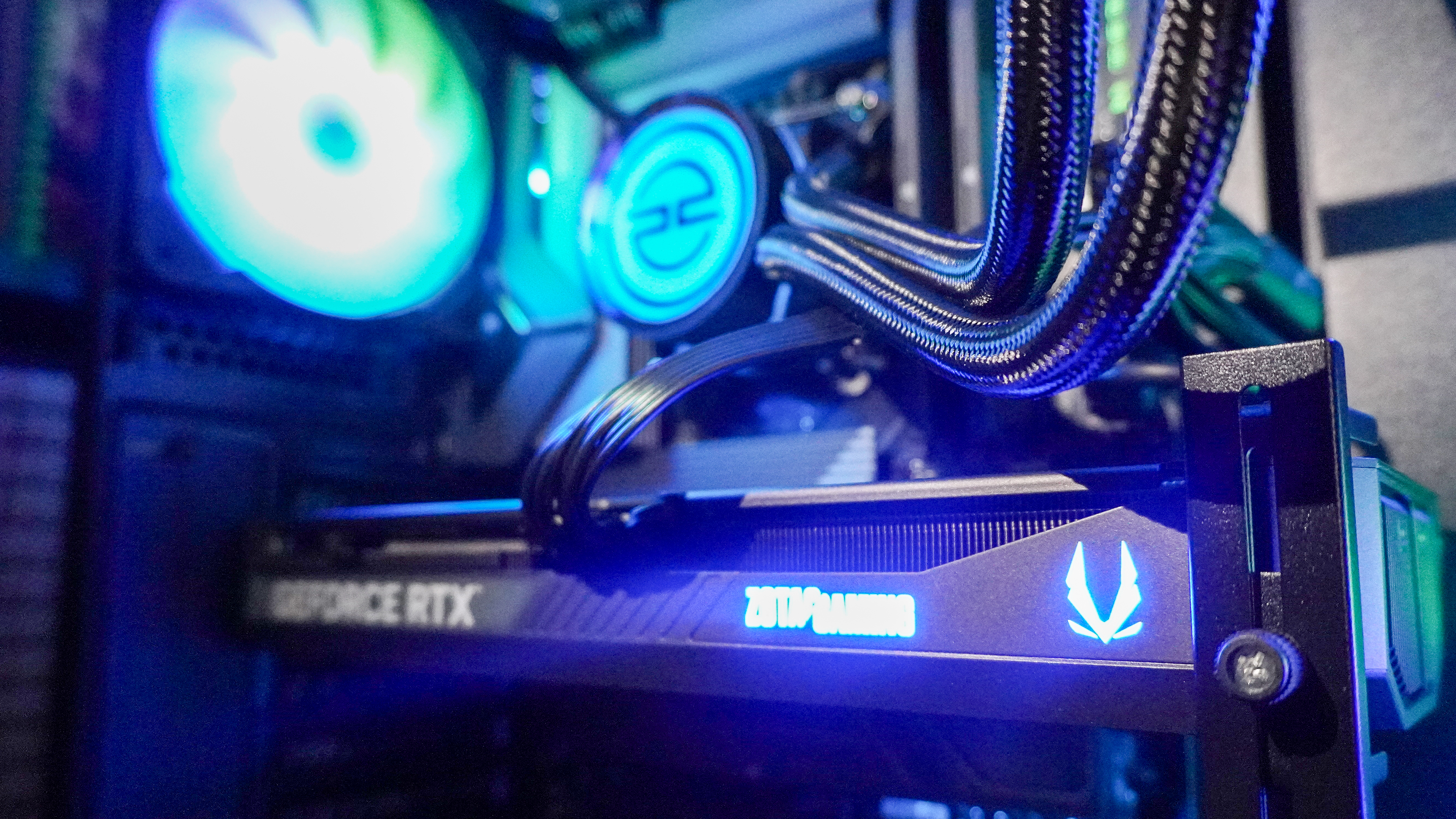ExpressVPN vs Cyberghost: Which provider is best?
Which provider wins out in this head-to-head battle?
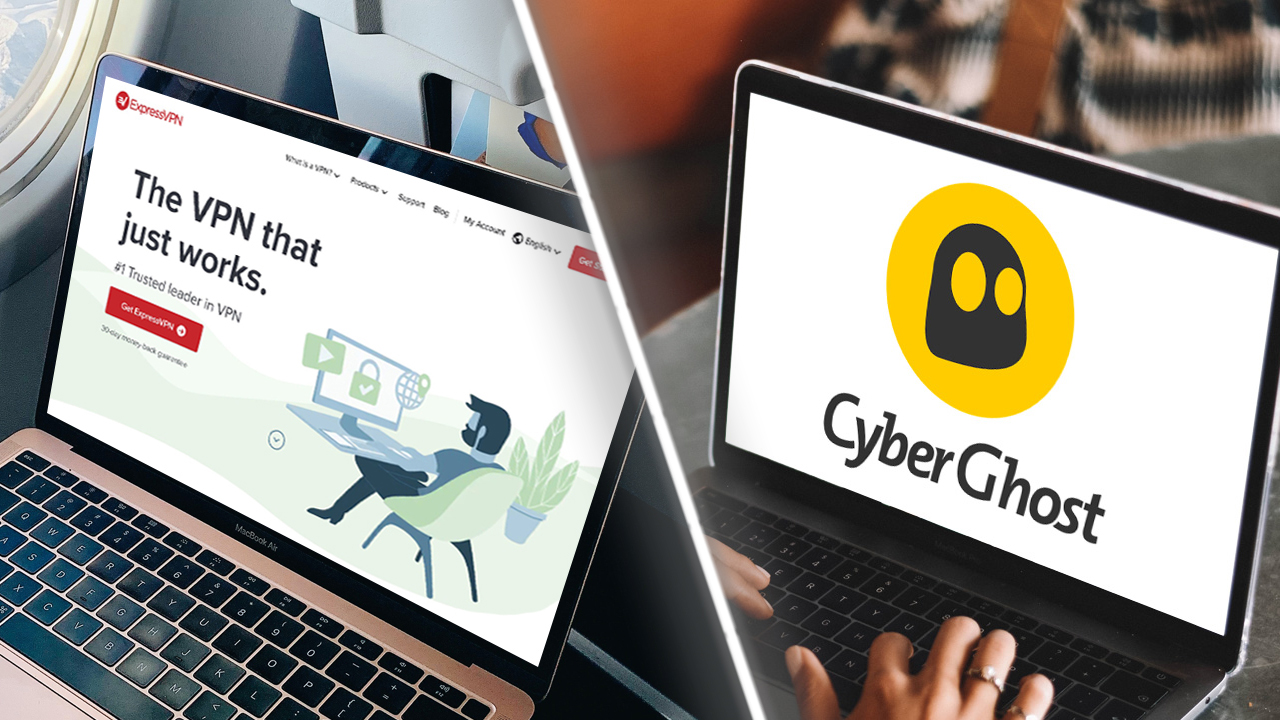
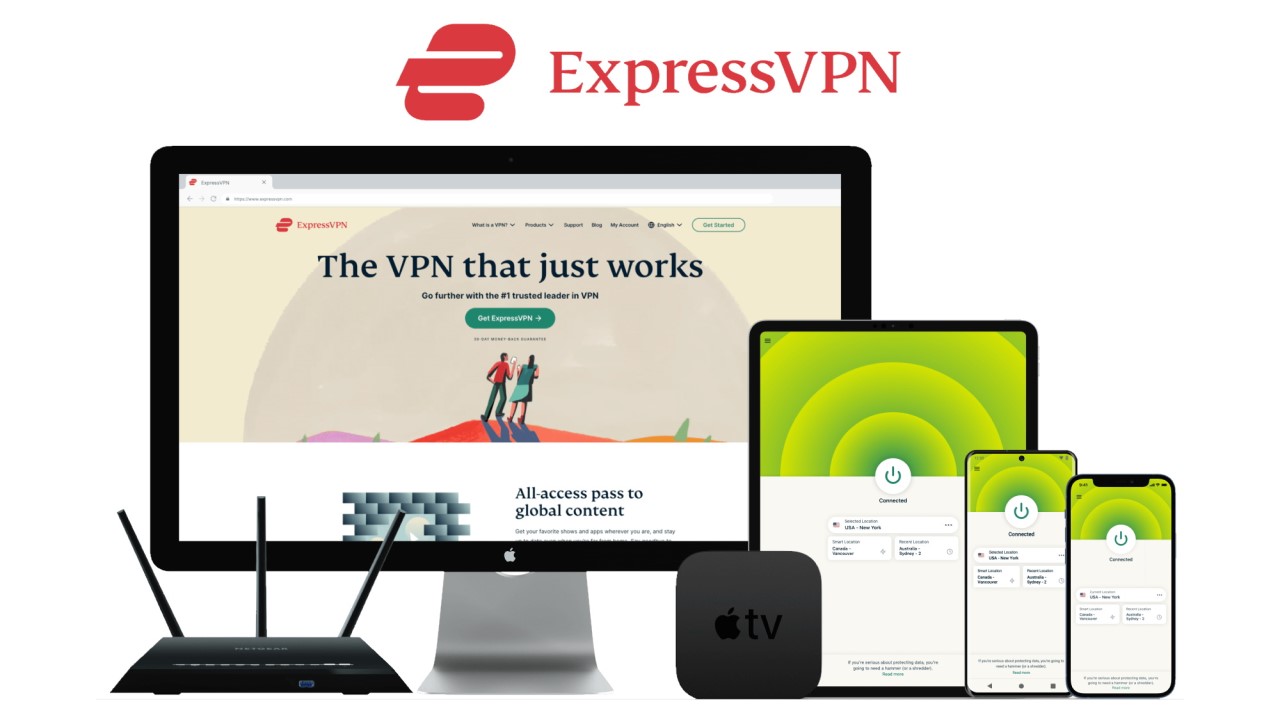
ExpressVPN is our #2 VPN for a reason - with excellent security options, superb unblocking capabilities and simple yet powerful apps, it's a great option for a VPN. It does come with a premium price tag, though.
For
- Simple, easy-to-use apps
- Excellent privacy features
- Great for torrenting
- Superb 24/7 support
Against
- A more expensive VPN
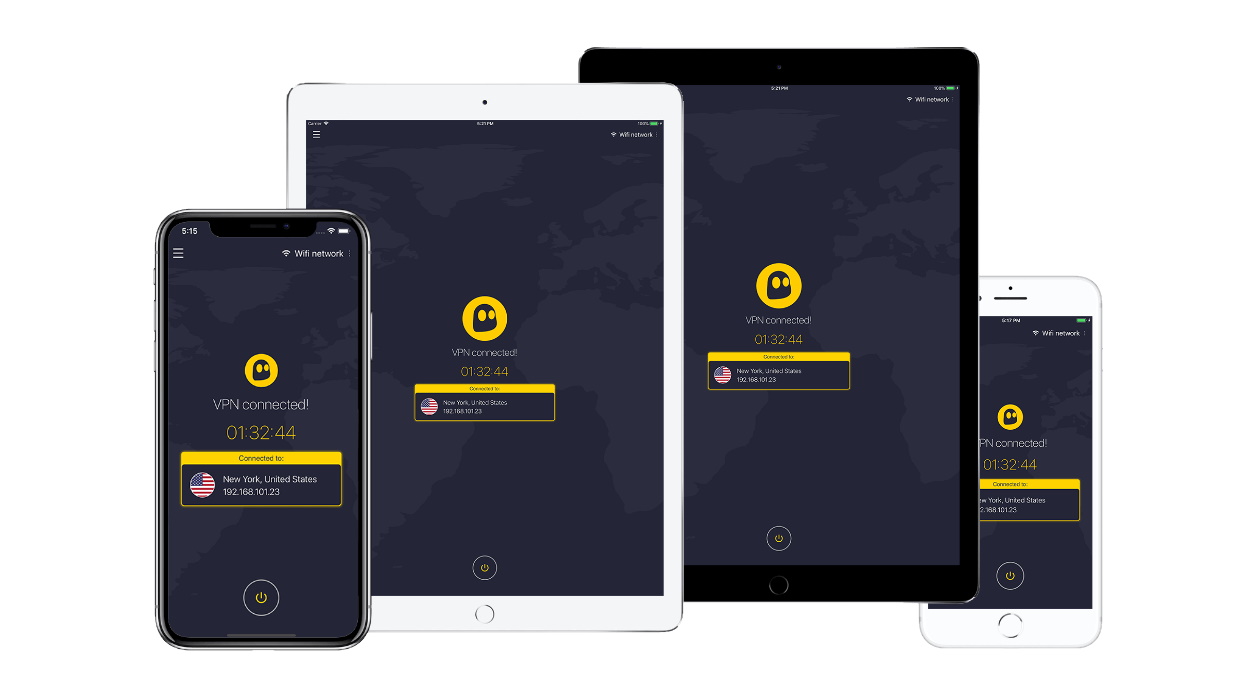
If you're planning on using your VPN for torrenting, CyberGhost is an excellent option. With high WireGuard speeds and tons of servers, CyberGhost gives you great options for picking a server to connect to. With this being said, CyberGhost only allows you to use it across 7 devices and its unblocking powers aren't quite as good as other VPNs on offer.
For
- Loads of great features on its apps
- Excellent speeds
- A large amount of servers
- Useful streaming features
Against
- Cannot unblock UK Netflix and Disney+
- App does not update frequently
ExpressVPN and CyberGhost are two of the most prominent names out there when it comes to VPNs. Both are extremely high quality VPNs, coming in at #2 and #6 on our best VPN list respectively.
However, each one of these providers caters to a certain niche: ExpressVPN is the premium price heavyweight with tons of extra features, whereas CyberGhost is the cheaper option that provides quality without breaking the bank.
The real question is: do ExpressVPN’s extra features justify its price, or does CyberGhost work out as better value for money? I’ll be pitching these two VPNs against each other in terms of pricing, privacy policies, performance, streaming capabilities, user apps, and extra features to see which one comes out on top.
Once you’re done reading here, you can check out our ExpressVPN and CyberGhost reviews for more in-depth analysis on either VPN.

ExpressVPN vs CyberGhost: Which is more affordable?
It’s no secret that ExpressVPN is one of the pricier VPNs out there, but how does it actually work out when you buy a long-term subscription? ExpressVPN offers three subscription plans: $12.95 per month, $59.95 for six months which works out at $9.99 per month, and $99.95 annually for around $8.32 per month. All of these plans come with a 30-day money-back guarantee, allowing you to test ExpressVPN safe in the knowledge that you can ask for a refund at any time during the trial period.
Some VPN providers try to bump up their subscription packages with extra paid add-ons, but all of ExpressVPN’s extra features come at no additional cost. The most notable one is ExpressVPN Keys, a password manager that keeps all of your passwords safe in an encrypted vault that you can access through apps for Android and iOS, as well as the Chrome browser via an add-on.
While CyberGhost offers a range of more affordable plans, you might be surprised to find their base plan is slightly more expensive than ExpressVPN at $12.99 per month. However, once you buy into a long-term subscription the cost of CyberGhost drops significantly. Six months of coverage under CyberGhost will cost you $41.94, working out $6.99 per month. Signing up for two years up front nets you four extra months for free, for a total charge of $56.94 or $2.03 per month. CyberGhost also has a generous 45-day money-back guarantee on plans longer than a month, and a 14-day guarantee for the monthly plan.
Sign up to get the BEST of Tom's Guide direct to your inbox.
Get instant access to breaking news, the hottest reviews, great deals and helpful tips.
There’s also a few paid add-on features you can tack on at checkout, including a dedicated IP for $5 a month, a security suite for Windows with antivirus protection and security updates for $4.50 a month, and CyberGhost’s own password manager for $3.49 a month.
ExpressVPN does not typically offer a free trial for desktop users but does provide a 7-day free trial for mobile users when you download the app from the Google Play or iOS store. On the other hand, CyberGhost offers a 24-hour free trial for desktop users and a 7-day free trial for mobile users.
Overall, CyberGhost works out far cheaper than ExpressVPN once you start exploring long-term subscriptions. Although it’s nice that ExpressVPN throws in a password manager for free, it simply doesn’t justify the extra cost on its own. While ExpressVPN may end up being better value for money once I’ve gone over its other features, CyberGhost definitely wins out if you’re on a budget.

ExpressVPN vs CyberGhost: Which is faster?
While ExpressVPN has traditionally been a high-speed provider, our recent VPN speed tests indicate that CyberGhost offers speeds that far surpass ExpressVPN. ExpressVPN achieves speeds of 210 Mbps with OpenVPN, whereas CyberGhost reaches 360 Mbps with OpenVPN.
Each provider offers faster speeds through their specialist VPN protocol, but once again CyberGhost wins out here. ExpressVPN’s Lightway protocol reaches speeds of up to 410 Mbps, while CyberGhost peaks out at a whopping 760 Mbps with WireGuard.
The good news is that both providers are more than capable of streaming 4K content without buffering while comfortably accommodating other devices on the same connection.

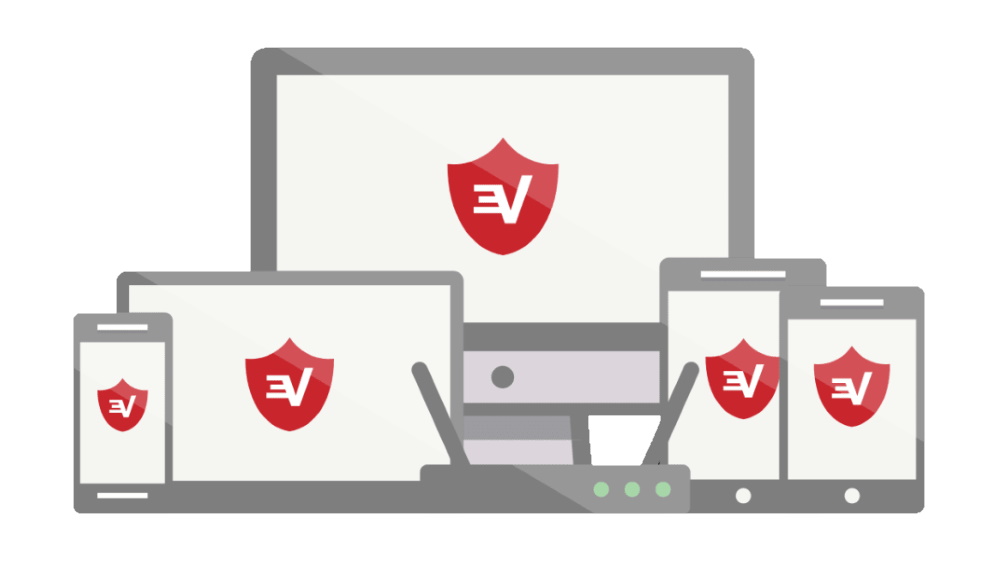
ExpressVPN vs CyberGhost: Which is more secure?
A VPN's primary function is to protect your online activities from prying eyes, ensuring your data remains secure and private. That’s why choosing a VPN provider that takes privacy seriously should always be your top priority. After all, you’re trusting your VPN provider with the safety of your data, as well as trusting that they don’t snoop on your internet traffic. Thankfully, both ExpressVPN and CyberGhost have pretty strong records when it comes to data privacy. Let’s dive a little deeper into what sets them apart.
ExpressVPN and CyberGhost both use industry-standard 256-bit AES encryption to protect your data when it’s being sent to the VPN server. They also both use OpenVPN, which is well-known for being highly secure to the point that most of the VPN industry prefers OpenVPN. It’s also open-source, so anyone can check that it’s fit for use. ExpressVPN also has their own proprietary Lightway protocol, which has been built from the ground up for high security and performance. CyberGhost doesn’t have their own proprietary protocol, but does support both WireGuard and IKEv2, which are both significantly more lightweight than OpenVPN and support quicker speeds for less resource overhead.
In terms of logging policy, ExpressVPN has a strict no-logs policy, meaning it does not collect any data that could be used to identify individual users. This policy has been independently audited multiple times, with 12 audits conducted between 2022 and 2023 for both data privacy and security.
While ExpressVPN implements zero-knowledge DNS, meaning it provides in-house encrypted DNS servers that do not log any DNS requests, there have been some issues with the way ExpressVPN has implemented DNS security in the past. In 2024, it became apparent that the Windows version of the ExpressVPN client leaked DNS requests to the default DNS server when configured with very specific settings to do with split tunneling. Although the leak did not expose user IPs and affected only roughly 1% of ExpressVPN’s Windows users, this definitely brought ExpressVPN’s security reputation into question. ExpressVPN promptly addressed the issue by disabling the relevant functionality until a fix could be released, as well as releasing research on how other VPN providers could detect and mitigate similar DNS leak issues in the future.
CyberGhost has a few advantages from a privacy perspective. As they’re headquartered in Romania, local law doesn’t require them to store user data or logs. On top of this, a full privacy-policy audit by Deloitte in 2022 confirmed that CyberGhost’s no-logs policy was fully valid. Additionally, CyberGhost runs a bug bounty program, incentivizing security researchers to identify and report vulnerabilities.
There’s been no major incidents from CyberGhost as far as data leaks go. The only thing you could consider a strike against them is an exploit found in their Windows client in 2023 as a result of their bug bounty program, but there’s no evidence to suggest this exploit was ever abused in the wild.

ExpressVPN vs CyberGhost: Which is better for streaming?
It’s all very good if a VPN is fast and private, but that doesn’t mean much if you can’t use it to watch the content you want to access. Streaming services are constantly blocking access from VPN providers, so hand-on testing is absolutely vital to make sure a VPN provider’s unblocking claims are up to date.
To this end, we test each VPN’s ability to unblock popular streaming services such as Netflix libraries in the UK, US, Canada, Japan, and Australia, as well as BBC iPlayer, Amazon Prime, and smaller regional sites.
ExpressVPN has always excelled when it comes to unblocking a wide range of streaming services, and I’m happy to report that hasn’t changed. I found that I was able to successfully access Netflix in the US, UK, Japan, Australia, and Canada. Additionally, ExpressVPN can unblock BBC iPlayer, Amazon Prime, Disney Plus, 9Now, 10 play, ITVX, and Channel 4.
CyberGhost isn’t quite as well known for its unblocking capabilities, but it does offer dedicated streaming servers specifically optimized for accessing streaming content. It performed almost as well as ExpressVPN during my testing, reliably unblocking all of the Netflix regions I tried as well as BBC iPlayer, Hulu, Amazon Prime, Disney Plus, HBO Max, and 9Now. Unfortunately, despite changing between multiple servers, I couldn’t manage to get 10Play unblocked.
So, despite CyberGhost providing specialized streaming servers, ExpressVPN maintains its reputation as the champion when it comes to unblocking streams.



ExpressVPN vs CyberGhost: Which has better apps?
My opinions on what makes a good VPN user interface (UI) will inevitably differ from yours, so don’t take what I’m saying as the last word on how well these apps work. That said, I’ve spent a fair amount of time testing out both of these apps and they’re not too different in terms of how they’re set up.
ExpressVPN's desktop app couldn’t be simpler to set up and use. Instead of logging in with a username and password paid, you just enter an authorisation code from your web dashboard into the app. Once you’re in, you just click the large power button in the center of the app and you’re connected. It’s nice and easy, even if you’ve never used a VPN before.
Just below, there’s a server menu in a dropdown box which is just as straightforward. It displays the current server you’re connected to, the server you’re closest to, and the server you were last connected to. If you need to be more specific, you can pop open a list of servers in a separate window which allows you to easily search from a wide range of countries. All of the more advanced options are hidden away behind another menu.
CyberGhost's desktop app is a little bit more fancy, but it’s the same basic idea. You’ve got a minimalist splash screen with a connect button and a location dropdown, but you can expand the app outwards to show a location picker as well as functionality and UI options. The server menu itself is pretty well-organized, with servers categorized by purpose, such as streaming, torrenting, and NoSpy servers.
I didn’t particularly prefer one approach over the other when it came to how both of these apps are laid out, as both do the job really well. However, it should be noted that CyberGhost shows you more information about your current connection at a glance including your current VPN IP address, how much data you’ve transferred, and which protocol you’re using.

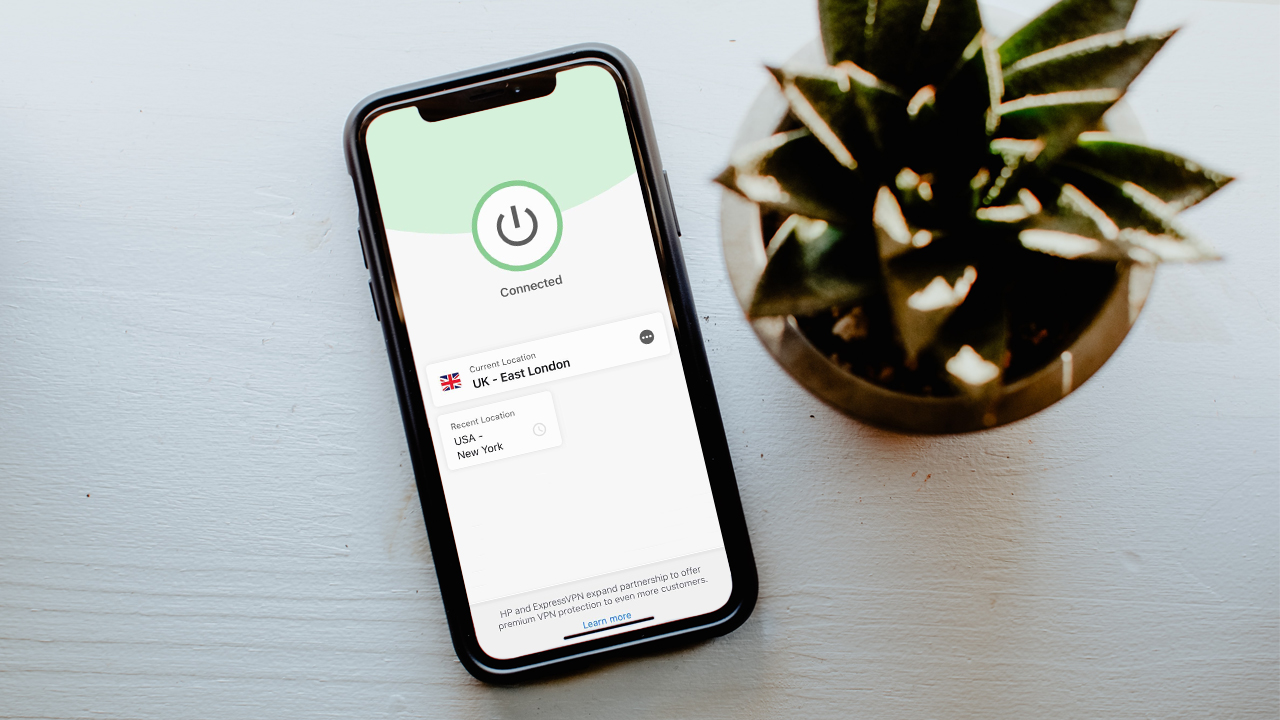
ExpressVPN vs CyberGhost: Which has better extra features?
It’s rare that a modern VPN comes with just the basic VPN functionality anymore. Most VPN providers are moving towards using a VPN as the basis for an entire integrated security platform—password management, virus scanning, identity protection, and more. These extra features and paid add-ons can go a long way to increasing the security of your device, but some are more useful than others. Let’s check out what ExpressVPN and CyberGhost both have to offer.
ExpressVPN offers several advanced features that make the premium price more palatable. All ExpressVPN servers run on TrustedServer technology, which ensures that all servers run on RAM rather than hard drives. Because the OS is run from volatile memory, all data is wiped with every reboot. This significantly improves your data security by preventing internet traffic or IP from being stored on the server, drastically reducing the chances that seizing the servers would turn up anything useful to an attacker.
ExpressVPN also includes a password manager, ExpressVPN Keys, which generates and manages user passwords across devices. It’s not a super complex security system, but it’s a convenient way to securely store your passwords and transfer them between devices that use ExpressVPN, although you’ll either have to use a mobile app or install a Chrome based add-on to get access to it.
ExpressVPN provides private DNS on every server you connect to, ensuring that DNS requests are encrypted using the same technology used to power your VPN connection so that they’re protected from third-party interception. Bundled into this system is Threat Manager, which works by blocking trackers and malicious sites at the DNS level so they can’t be accessed through the VPN. This stops trackers from phoning home, as well as reducing the likelihood malware can be downloaded onto your machine.
With CyberGhost, you can pick and choose which extra features you want based on your needs. One significant advantage over ExpressVPN is the fact that you can purchase a dedicated IP, which is useful for activities that require a consistent IP address such as gaming and hosting web services.
CyberGhost’s Windows Security Suite includes antivirus protection and security updates, providing an added layer of security beyond the VPN service. It’s a nice addition if you haven’t got any other security software installed, but it’s a little expensive at $4.95 per month.
CyberGhost also offers optimized servers for specific activities like streaming, gaming, and torrenting, ensuring better performance and reliability when you use these servers. I’m a particularly big fan of the fact that the streaming servers are explicitly labeled with which streaming services they’re optimized for, taking all the guesswork out of connecting to a specific server for your stream.
In terms of extra features, CyberGhost definitely offers more than ExpressVPN but the question is really how much you’re willing to pay. Not everyone is going to need a dedicated IP and most people are already going to have some form of anti-virus, so if this is the case then ExpressVPN’s built in password manager is a better extra from a value perspective.

ExpressVPN vs CyberGhost: Final verdict
After thoroughly comparing ExpressVPN and CyberGhost across various aspects, I’m going to have to give this one to CyberGhost. I don’t think ExpressVPN is a bad VPN provider by any means. However, CyberGhost provides almost the same experience for a far cheaper price and comes with some interesting add-ons too.
That said, if you’re a streaming aficionado I’d recommend ExpressVPN. Despite having slower speeds than CyberGhost, its enhanced unblocking capabilities are what you’re going to care about when it comes to streaming. ExpressVPN still runs fast enough to cope with HD content easily, and the fact that all of its servers across 100+ countries are optimized for streaming means you’ll never have to deal with getting the best server for your stream.
If you’re still undecided, there’s another choice. NordVPN is our overall number one pick for best VPN, for several reasons. NordVPN combines speed, strong security, and excellent unblocking capabilities at a price point that won’t break the bank. With its ability to unblock virtually any content, NordVPN is one of the best choices out there if you’re looking for a streaming VPN.

Sam Dawson is a cybersecurity expert who has over four years of experience reviewing security-related software products. He focuses his writing on VPNs and security, previously writing for ProPrivacy before freelancing for Future PLC's brands, including TechRadar. Between running a penetration testing company and finishing a PhD focusing on speculative execution attacks at the University of Kent, he still somehow finds the time to keep an eye on how technology is impacting current affairs.
